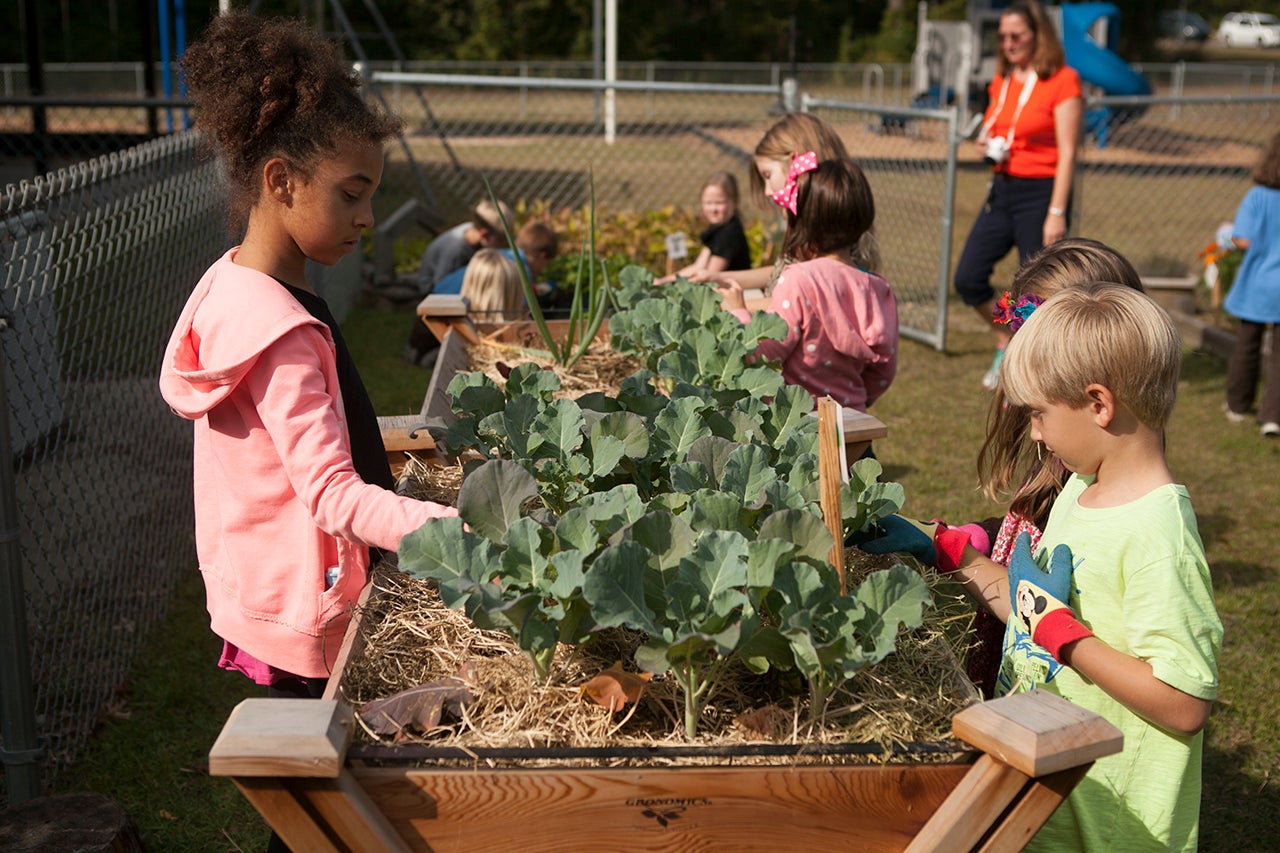Boeing, the world’s largest aerospace company, has announced it will continue funding the statewide, multiagency Food Systems Change Initiative under the direction of the College of Charleston. The $125,000 grant supports the initiative’s efforts to improve academic and health outcomes among South Carolina’s children, and open the school nutrition market to local farmers.
Olivia M. Thompson ’99, associate professor of public health and director of public health initiatives for the College’s Riley Center for Livable Communities, has overseen the initiative since its inception in 2012 as a farm-to-school program. Since that time, the initiative has become a statewide effort to increase access to healthful, local foods among food-insecure youth.
“The Food Systems Change Initiative has brought together key stakeholders from multiple sectors to work toward achieving the initiative’s goals,” explains Thompson. “With Boeing’s assistance, we have been able to support the Lowcountry Food Bank’s nutrition education efforts as well as Lowcountry Local First’s Farmer Apprentice Program.”
RELATED: Read about how the farm-to-school program has grown into a statewide initiative.
Thompson has cultivated relationships with Clemson University Extension and Trident Technical College to launch successful school gardening and culinary training programs for teachers and school nutrition professionals in more than 200 schools. She has also collaborated with the Clemson Center for Architecture in Charleston to construct two small-scale commercial kitchens.
College of Charleston students play an integral role in the programming. Hundreds of students help in the schools, on the farms and with research and evaluation.
“Internships along with postgraduate public health fellowships give students the field and research experience needed to be competitive for entry into graduate school and the workforce,” adds Thompson.
“We are proud to continue our support for this initiative,” says Jessica Jackson, global engagement manager with Boeing South Carolina. “Not only do we get to see the positive impacts on students and their families, we also know that promoting optimal health and wellness drives community economic development.”





